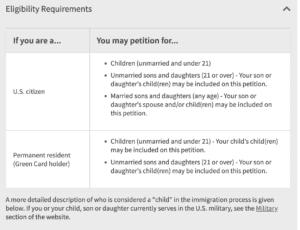What Is a Medical Power of Attorney?
2022-06-03
As we age, our medical needs change. That is just a part of life. And depending on your personal medical history, you may want to plan for an event where, if you cannot communicate directly with doctors and nurses, you have someone who knows your medical wishes and can make sure they’re upheld. This is the purpose of a medical power of attorney in Arizona.
What a Medical Power of Attorney Does
If you have been doing some research on estate planning or already have an estate plan, chances are you’ve heard the term “power of attorney” (POA). A standard POA is someone you legally designate to make decisions regarding your estate. A POA handles financial, real estate, and business-related questions if you are unable to.
A medical power of attorney in Arizona is very similar to a standard POA. However, in this case, the person you legally appoint only makes decisions regarding your medical care. Some medical POA decrees might include:
- Health care choices, including medications and surgeries
- Where you should go for medical care
- The specific doctors you want to take care of you
- Who will take care of you if you require long term care
- Any heroic measures medical professionals should take to revive you, as well as do not resuscitate (DNR) orders
Some people also detail their medical wishes in an advance directive or a living will. A medical POA will ensure that both of these documents are followed.
A medical POA is also called a durable power of attorney. This means your POA cannot legally take action unless something happens to incapacitate you. Situations where a POA can act on your behalf include:
- Going under anesthesia for a surgical procedure
- Becoming unconscious or placed in a comatose state
- A dementia diagnosis where you are no longer able to make rational decisions
- Loss of communication after an accident or illness, such as a stroke
Filing a Medical POA in Arizona
Do you want to set up a medical power of attorney in Arizona? Here are our top tips for going through the process.
Step 1: Pick the Right Person
The person you select as your medical POA could be making extremely important choices about your medical care. Selecting the right person for this position is crucial. Take your time to think about the people in your life and who would be best for the role. Remember, you cannot designate your doctor or another healthcare provider as your medical POA.
Step 2: Make Sure Your Medical POA Understands Their Role
Once you know who you would like to act as your medical POA, meet with them to ask their permission and explain to them what the role entails. Not everyone may be comfortable making important medical decisions, especially during emotional times. The person designated as your medical POA has to feel confident they can uphold your healthcare wishes in any situation.
Step 3: Use an Estate Planning Attorney
A medical power of attorney is a legally binding document. An estate planning attorney can walk you through the process, making sure you have created and correctly filed the paperwork. Once your medical POA is confirmed, you will need to provide copies of the document to your primary care physician, spouse, children, and anyone else who should know about it.
Step 4: Keep It Updated
Remember to update your medical POA regularly. Over time, chances are good that your medical situation or health care wishes will change. Work with your estate planning attorney to change your medical POA as necessary to keep it fully updated in case you ever need it.
Establishing a Medical Power of Attorney in Arizona
Life is full of unplanned events. Establishing a medical POA gives you peace of mind in case anything happens where you can not communicate your healthcare wishes. It also takes some of the burden off of your loved ones if they ever face making tough decisions on your behalf.
If you would like to add a medical power of attorney to your estate plan, contact the experts at Phelps LaClair. Call us today at 480-892-2488 to make an appointment at one of our many convenient locations across Arizona.
Photo by Külli Kittus on Unsplash






